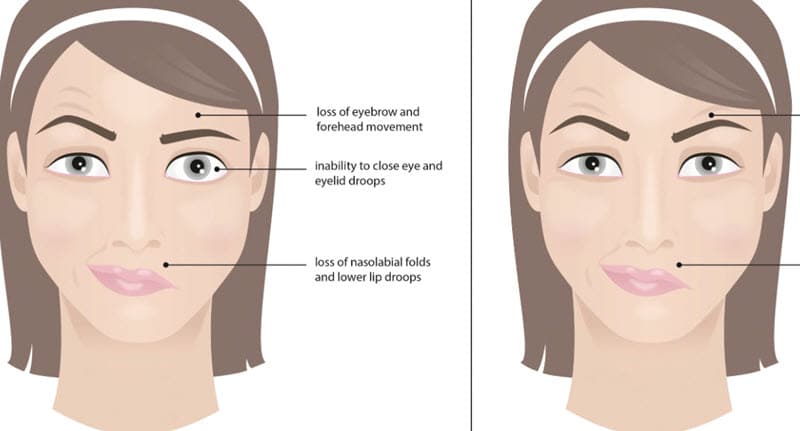Facial Paralysis

Facial paralysis can be a temporary or permanent condition where the patient cannot move the facial muscles on one or both sides. Medical experts say facial paralysis can happen due to congenital nerve damage, trauma, or serious diseases such as tumors, strokes, or Bell’s palsy.
Doctors also say that vestibular neuritis can cause sudden dizziness and vertigo. Experts surmise that the condition triggers vertigo because of inflammation affecting the inner and middle ear workings, which house the vestibular organs. Anything that affects the area can immediately cause dizziness, a general feeling of unwellness, and the onset of vertigo.
Facial paralysis can happen to one or both sides of the face. Such a condition affects speech, blinking, swallowing saliva, eating, or communicating through facial expressions. Most people who have facial paralysis also suffer from dropping features and may also suffer from vertigo.










